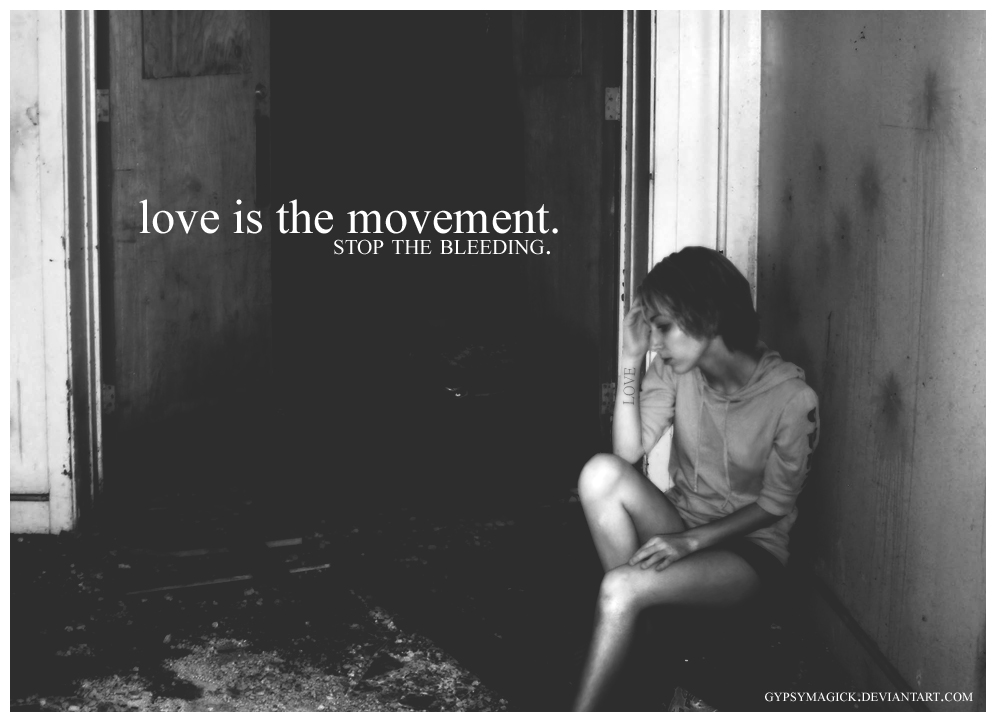Artist's Comments
Love is the Movement. Stop the Bleeding."The truth is that according to the World Health Organization, depression is one of the leading causes of disability, with approximately 121 million people suffering with depression worldwide. The National Institute of Mental Health states that approximately 18 million people suffer from depression in America alone. Depression does not discriminate across age, race, gender, or class. Among teenagers it is estimated that 20 percent will suffer from depression at some point by the time they reach adulthood. There are also as many as 8.3 percent of teens suffering from depression for at least a year at a time, compared to 5.3 percent of the general population.
Insprired by the work of TWLOHA (To Write Love On Her Arms), an organization created to spread awareness for teen depression, self-injury, and suicide, we are coming together to make sure the whole world knows. We are not directly affiliated with TWOLHA, but are in great support of their work To find out more about TWLOHA visit their Facebook Group here: [link]
During the time of year that suicide rates are at their highest, we chose February 13, the day before Valentine's Day, as our opportunity to start showing people how much they are loved. We will physically write the word LOVE on our arms (with a sharpie, or whatever other ink suits you best). If someone asks you what it’s for, tell them about TWLOHA. Tell them they are loved, that they are important. And ask if you can write LOVE on their arm as a symbol of that. Don't be afraid to reach out to those who need love, those who you often walk right by every day. They need our care.
There is NO set time, there is NO set location. Where you are, when you are there, speak out.
Some of us may choose to share the love of God, but we want you to share whatever love is strongest for you. Depression has no boundaries, but neither does our love.
Stop the bleeding. Rescue is possible."
Artist: Gypsy Magic







